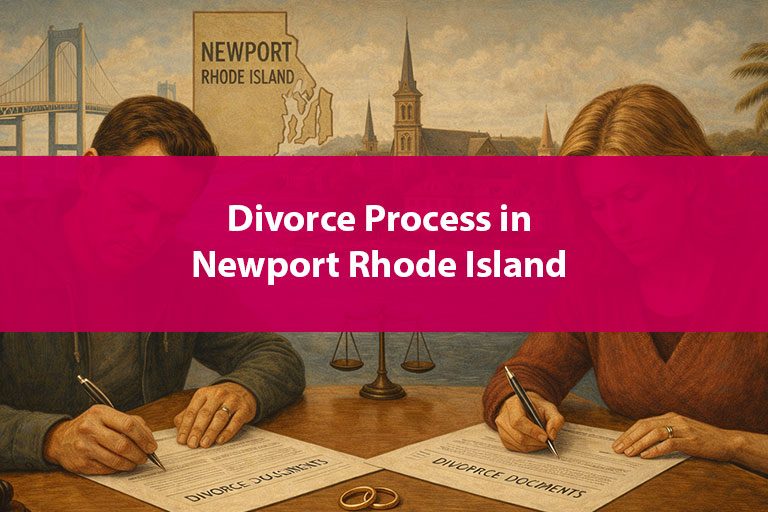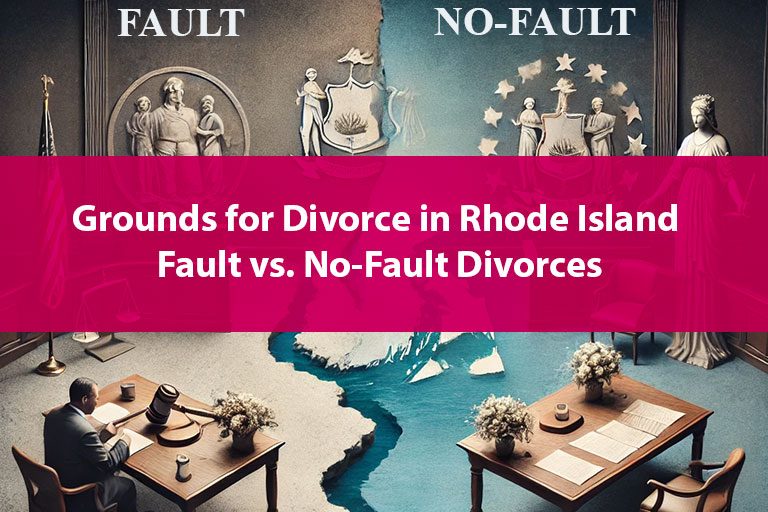- 20+ years handling Rhode Island divorce & family law cases
- Extensive experience in Providence & Newport Family Court
- Focus on negotiated resolutions and contested divorce litigation
- Clear guidance on custody, support, and asset division
- Free divorce and family law consultations


Divorce Lawyer in Providence, Rhode Island
Law Offices of Susan T. Perkins Esq. Specializes in Divorce, Family Law in RI.
Get Ready to Any Help For Law Solutions
Why Clients Choose Susan T. Perkins for Divorce in Rhode Island
Susan T. Perkins is an experienced divorce and family law attorney based in Providence, Rhode Island. For over two decades, she has represented individuals and families in divorce, child custody, child support, alimony, and other family court matters throughout Rhode Island, including Newport County.
Attorney Perkins is known for her practical, straightforward approach to divorce cases. She helps clients understand their rights and guides them through Rhode Island Family Court in both contested and uncontested divorce matters, with a focus on protecting her clients’ financial interests and parental rights.
- Tri-State Licensure: Susan T. Perkins holds legal licensure in Rhode Island, Massachusetts, and Connecticut, allowing her to extend her legal expertise and services to clients across a wide geographical region and navigate the legal complexities of multiple jurisdictions.
- Versatile Expertise: Susan’s practice encompasses a range of legal specializations, including Divorce, Family, and Criminal Law. Her versatility enables her to address an array of legal challenges and offer holistic solutions to clients with diverse legal needs.
- Personalized Client Advocacy: Susan is deeply committed to advocating for her clients and their best interests. Her practice is centered on delivering customized legal strategies and seeking the most favorable outcomes for her clients in every case.
- Empathetic and Communicative Counsel: Susan approaches her legal representation with empathy and attentiveness. She prioritizes open communication and collaboration with her clients, creating an environment where they feel supported and empowered throughout the legal journey.
Frequently Asked Questions About Divorce in Rhode Island

Who is the best divorce lawyer in Providence, Rhode Island?
The best divorce lawyer is one with extensive experience in Rhode Island Family Court, a primary focus on divorce and family law, and a proven track record handling custody, support, and asset division. Susan T. Perkins has over 20 years of experience representing. divorce clients throughout Rhode Island.
Do I need a Newport-based lawyer to file for divorce in Newport County?
No. Divorce cases in Rhode Island are handled through Family Court, and an experienced Providence divorce lawyer can represent clients in Newport County without issue.
Is Rhode Island a no-fault divorce state?
Yes, Rhode Island is a no-fault divorce state. Here’s what that means:
Some people are led to believe that a no-fault divorce means that the separation of assets gets split right down the middle and each party gets half of what was accumulated throughout the marriage. This is not the case. No-fault simply means that in order to file for a divorce in Rhode Island, you don’t have to prove grounds of fault. You can say there are “irreconcilable differences” and both parties have agreed to take responsibility for the marriage coming to an end.
What are the requirements for a no-fault divorce in Rhode Island?
There are a few minimal requirements to file for a no-fault divorce in Rhode Island. These are:
- Both spouses must have been living in Rhode Island for more than one year before the divorce.
- Irreconcilable differences have caused the marriage to be beyond repair,
- OR you and your spouse have been living separately for more than three years.
Why should you choose mediation in Rhode Island?
Mediation is the process of working with a legal expert and neutral third-party (referred to as a mediator) who helps a couple reach a compromise on the terms and conditions of their divorce. Here are a few benefits of going down the path of mediation:
- Economical for both sides
- Quicker settlements
- More predictable and collaborative than a trial
- Less hostile than going through the courts
- Includes comprehensive agreements that more likely lead to compliance on both sides
While mediation can be a positive, effective, and amicable way of handling a divorce, it’s also not for everyone. If you believe that you’re ready to learn more about mediation for your divorce, contact Susan T. Perkins Rhode Island divorce attorney today.
Do I have to serve my spouse with divorce papers in an uncontested divorce in Rhode Island?
Yes. The spouse must be served by a local sheriff or constable. Normally, this will be handled by your lawyer’s office. A copy of the papers must also be filed with the sheriff’s office.
How long do I have to wait for a court date?
After the complaint is filed, the clerk will schedule a court date for approximately 75 days afterward. In some cases, the judge may waive the waiting period. To do this, both parties must sign a waiver stating there is no chance of reconciliation.
Is there a waiting period in Rhode Island?
Yes. If the grounds are “irreconcilable differences”, there is a waiting period of 90 days after your court appearance. If the grounds are living “separate and apart for at least 3 years” there is a 21 day waiting period.
- Roger Williams University School of Law, Bristol, RI J.D., 1997
- Executive Vice President, Student Bar Association
- BRYANT COLLEGE, Smithfield, RI B.S., 1993

Rhode Island Divorce Attorney
Criminal Defense Attorney
Assistant City Solicitor for Law Enforcement, for the City of Newport
- Massachusetts (1997)
- Rhode Island (1998)
- Connecticut (1998)
- United States District Court, District of Rhode Island (1999)
- United States District Court, District of Massachusetts (2004)
Frequently Asked Questions Regarding Rhode Island Family Law

Should I get a prenuptial agreement?
It’s strongly advised to seek out a Rhode Island family law attorney to form a prenuptial agreement if you’re about to get married. Some believe that prenuptial agreements are only for wealthy people with multiple properties and valuable assets. However, more and more people of all socioeconomic levels are choosing to have prenuptial agreements. Susan T. Perkins is a Rhode Island family law attorney who can help you to formulate the terms and conditions of a potential separation and help to protect your financial future. To learn more about how a prenuptial agreement can benefit you, contact our law firm today.
How do I know if I’m eligible to get an annulment?
It’s important to work closely with a Rhode Island family lawyer to know if you’re eligible to get your marriage annulled. In order to obtain an annulment, you have to prove that your marriage shouldn’t have existed in the first place. For instance, in cases of fraud, incest, bigamy, or marriage by force, annulments are entirely possible. Annulments will usually involve religion in some way because you’re also dissolving the marriage in the eyes of the church as well. The annulment procedures can be complex and sometimes difficult to resolve. That’s why you need a Rhode Island family law attorney with experience handling annulment cases. To learn more about annulments and how they’re obtained, contact Susan T. Perkins today.
Who makes child custody decisions in Rhode Island?
The primary goal of a Rhode Island family law court is to provide the opportunity for the parents to decide where their child will live, how their child will spend their time, where they’ll celebrate holidays, and spend their vacations. In cases where parents are facing an amicable divorce and they can agree on the arrangements of child custody, they will ultimately be the ones who decide the terms and conditions of child custody.
However, in other cases, where mediation is unsuccessful and there is a highly contested divorce, it can be difficult for parents to agree on even the simplest of terms of child custody. When parents cannot agree on child custody arrangements, their case will likely go to court and a judge will be the one to make child custody decisions. If you’re facing a divorce with a child or children involved, it’s vital to work with a Rhode Island family law attorney that specializes in child custody cases. Contact Susan T. Perkins today to discuss your child custody case.
What factors does a judge consider when making child custody decisions?
A family court judge will base this decision on several different factors and ultimately decide on what’s in the best interest of the child, such as the age of the child, the willingness of each parent to care for the child, the mental health and physical health of both parents, histories of drug or alcohol abuse in either household, the presence of extended family or siblings, and many other variables that contribute to the overall wellness of the child.
What are the child support laws in Rhode Island?
In Rhode Island, it’s the responsibility of both parents to provide care and financial security for their child. These responsibilities are typically broken down between the custodial parent and the non-custodial parent. The non-custodial parent is the one who spends less time with the child, which means they will be the parent making the child support payments. Since a child spends the majority of their time with a custodial parent, this parent directly supports the child due to the nature of their living arrangement.
How are child support payments determined?
The amount of child support paid will be determined after the Rhode Island Family Court reviews several different elements, such as joint income, the child’s needs, their lifestyle before the divorce, and other important factors. Once a child support order is determined, the non-custodial parent is legally obligated to commit to these payments until the child reaches the age of maturity or until a modified order is approved by a judge. Of course, this is just a brief description of how a child support order is established by Rhode Island law. To hear more specific details on child support laws or how a child support order will affect you, contact our law firm today to speak with child support lawyer Susan T. Perkins.
What Customers Are Saying

I was referred to this firm from a family member for my divorce. I am So Very Glad I did. Susan is an Amazing attorney and couldn’t have done this without her.
Susan worked hard on my case. She was honest the whole time. She represented me when the case was quite possibly at a point easy for other party to lie. I'll know soon enough if that is true, and if not adapt best I can. Still I think she worked hard & the evidence certainly points this way when I organize attorney work.
We found susan perkins law firm through a friend that had a similar issue trying to optain parental rights as a father during a custody dispute. Thankfully Attorney Perkins was able to help us with this matter. We were able to reach an agreement in shared custody that we felt was fair. I am very satisfied and would reccomend Susan Perkins as an attorney to anyone in need of representation.
I hired Attorney Susan Perkins to represent me in a divorce. She is a great and very knowledgeable attorney. I was going through what was supposed to be simple divorce, that has turned into a a very difficult one and Susan was there for me every step of the way. I would not be able to do it without her. I really like the fact that I only dealt with my attorney and not a substitution one like some big firms have. I was able to get divorced and leave a toxic domestic violence relationship. I highly recommend Attorney Susan.
I came to the firm for help with a child custody case and Susan was absolutely amazing. She was patient and helped me through every step of the way. I would absolutely com to her again for anything I may need in the future.
Susan met my expectations and then some. Not only did she handle one of my cases but two and she made sure I came out on the other side. From the moment I met Susan I knew I could put my trust in her and she reassured me everything would work out in my favor, as it did, and thanks to her. Every worry, every doubt, every fear I had was set aside every time we spoke and she gave me not only the support but confidence I needed to tackle what lied ahead of me. I can only give gratitude and thanks to what Susan has done for my small family and I. For anyone going through any legal battles I would highly recommend her. She is a great attorney and all around great person.
I worked with Susan previously for my divorce and trusted her. Susan is straightforward and easy to work with. My kids biological father was requesting a significant increase in the amount of visitation time. The amount of visit time was only slightly increased. My kids struggled with increased visit time, but it was nothing compared to what it would have been if he had been granted everything he asked for.
Having Attorney Perkins represent me was a true blessing. She worked hard to get the results in which I felt was a win. I am completely satisfied. So for anyone that is looking for representation; I highly recommend Attorney Susan Perkins. She will not give up, and give her absolute best. I remember Attorney Perkins saying to me be honest with me and I will do whatever I can to help you. She is not your average Attorney! She is absolutely amazing. Thank you Attorney Susan Perkins.
I needed a divorce lawyer. Susan was recommended to me by a friend. I really enjoyed working with this law firm. They were professional, respectful and informative. Whenever I had a question they were there for me in a timely manner and were patient even when I wasn't. They navigated through the whole process with me. I was very pleased with the outcome. I am happy to report the divorce was granted and I am more peaceful with less stress. Thank you Susan and Donna.
Frequently Asked Questions About Criminal Offenses in Rhode Island

What can you expect after an arrest?
If you’ve been charged with a felony or a misdemeanor in Rhode Island, there are a few things you can expect. After an arrest, you’ll be processed at the police station, and eventually charged with a crime in a District court. It’s absolutely critical to request to speak with a criminal defense attorney at this stage if you haven’t spoken with one yet. Remember that it is your right to have a proper defense and legal representation. Next, you’ll be given an arraignment hearing. This is when you appear before a judge and plead not guilty, guilty, or nolo contendere. Once a judge accepts your plea and your bail is set, you’ll be given a date for your pretrial hearing. It is never advised to attend an arraignment hearing without a lawyer.
What happens at a pre-trial meeting?
At your pre-trial meeting, your criminal defense attorney will be given details of your arrest from the prosecutor. These details will include things like the police report, who was present at the time of the arrest, witness statements, details of any physical evidence, and anything else related to your criminal charges. At your pre-trial meeting, you’ll collaborate with your criminal defense lawyer to create the best defense strategy for your case. This may take only one meeting, or multiple pre-trial meetings depending on how complex your case is and what your criminal charges are. Your lawyer may decide that your charges should be dropped or will attempt to work with the prosecution and negotiate on your behalf for the best possible option. If there’s no resolution in sight, your attorney may advise you that your best option is to go to trial. At your trial, your Rhode Island criminal defense attorney will challenge the prosecution’s case and provide your side of the story. Finally, a judge or jury will decide on a verdict after hearing both sides.
Is it possible to have criminal charges dropped?
Yes, it is possible to have criminal charges dropped in Rhode Island — but the chances of getting criminal charges dropped is greater when you’re working with a skilled criminal defense attorney with experience. Our goal is to always have our client’s criminal cases dismissed or charges dropped whenever possible. Criminal defense lawyer Susan T. Perkins also works aggressively to lessen punishments and penalties, if a dismissal is not possible. To discuss your case and learn more about the potential of having your charges dropped, contact our law firm today.
What are the levels of offenses in Rhode Island?
If you’ve been charged with a crime, you’ll be dealing with one of the three levels of offenses, which are petty misdemeanors (sometimes referred to as infractions), misdemeanors, and felonies.
Petty Misdemeanor or Infraction: A petty misdemeanor or infraction is the lowest level of offense in Rhode Island. Examples of petty misdemeanors are traffic violations, disorderly conduct, littering, or public indecency. Common penalties for petty misdemeanors can include fines of up to $500 or six months or less in jail.
Misdemeanor: A misdemeanor is more serious than a petty misdemeanor but less serious than a felony. Examples of misdemeanors may include simple assault and battery, trespassing, shoplifting, possession of illegal drugs, vandalism, reckless driving, or indecent exposure. Common penalties for misdemeanors can include expensive fines and up to 1 year in jail.
Felony: A felony is the most serious type of criminal charge you can face. Examples of felonies include arson, burglary, rape, murder, kidnapping, breaking and entering, or forgery. Penalties for felonies can range significantly depending on the crime. If you’re charged with a felony, your case will be handled in a superior court and you can face multiple years in prison.
Some people believe that simple infractions, like traffic violations, don’t require legal representation. However, the consequences of even the simplest crimes can result in huge obstacles in your life such as expensive fines, loss of a license, or an inability to apply for loans or jobs. Remember to contact a criminal defense lawyer immediately if you’ve been charged with a petty misdemeanor, a misdemeanor, or a felony. Contact criminal defense lawyer Susan T. Perkins today to learn more about the extent of your criminal charges.
What types of criminal charges does your law office handle?
No matter what your criminal charges are, Susan T. Perkins is your best defense. Our law firm handles all Rhode Island criminal cases such as domestic violence charges, assault, trespassing, drug crimes, DUI’s, burglary, rape, or homicide. There’s no criminal offense that we won’t defend. Remember that our law office doesn’t take a “wait and see” approach with criminal charges. No matter what your criminal charge is or how severe it appears to be, Rhode Island criminal defense attorney Susan T. Perkins should be your first point of contact. Always keep in mind that the sooner you call, the better your results will be. If you’re concerned about the type of crime you’ve been accused of, or if you have questions about a defense strategy for your case, call our law office today to learn more.
Supporting The Fight: Breast and Skin Cancer Awareness
RI Criminal Defense Lawyer Susan T. Perkins is a supporter of the fight against breast cancer. While Susan T. Perkins dedicates her time and energy to her clients, she has dedicated her practice to support the fight against breast cancer. One of Susan’s greatest mentors was diagnosed with advanced stage breast cancer. Susan’s law practice work is in memory of her mentor – Susan Wellin.


 CALL US NOW
CALL US NOW










